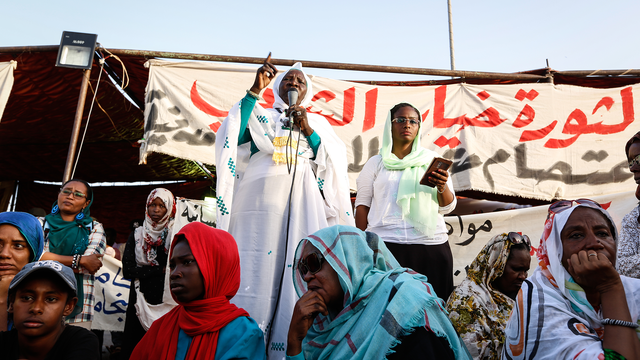Archives - Program 2020
Sudan: the women at the heart of the revolution

Discussion to follow in livestream on fifdh.org
The Sudanese revolution secured major victories in bringing about regime change. Following the fall of the former President in April 2019, withdrawal of the Transitional Military Council in July and a constitutional agreement in August, the popular uprising of the Sudanese people paved the way for transition to greater social justice and distribution of wealth. This movement rallied different segments of the population. Women in particular played a leading role, being at the heart of citizen protests. Unafraid to break social codes and demonstrate against the authorities, they have been particularly visible and widely mediatised. In a conservative and patriarchal society, how did they emerge as key political and social actors? Is this perception of women's place in the revolution biased by a Western-centric analysis, or has the revolution profoundly shaken Sudanese cultural and social codes?
The report Sudan: the Women's Revolution presents the struggle of women who do not hesitate to take part in demonstrations for the future of their country but also for equality and emancipation.
Sunday 8 March
14:00
Espace Pitoëff - Théâtre
Speakers
Alaa Salah Ali Taha Activist, symbol of the Sudanese Revolution
Tahani Abass Journalist and women’s rights activist
Moderated by
Christophe Ayad Special Correspondent, Le Monde
This debat is preceded by the movie:
Sudan: Women on the Front Line
By Sara Creta & Mehdi Meddeb

A few weeks after the fall of Omar al-Bachir, thousands of Sudanese gathered daily in front of the army headquarters to demand the establishment of a civil government, before being brutally dislodged by the military. Be they mothers, activists, teachers, students or musicians, the women who participate, with strength and determination, in this pacific revolt speak of how, after third year of oppression and humiliation, they found the courage and hope to continue to mobilize in favour of a democratic Sudan.
An Arte film
Section Film thématique
- Director(s)
- Sara Creta & Mehdi Meddeb
Production
- Fabienne Rieffel
- Brachet Philippe
- Barbara Conforti
- Magneto Presse
Rights holder
- ARTE
- Duration
- 24'
- Year
- 2019
- Production country
- Portugal









